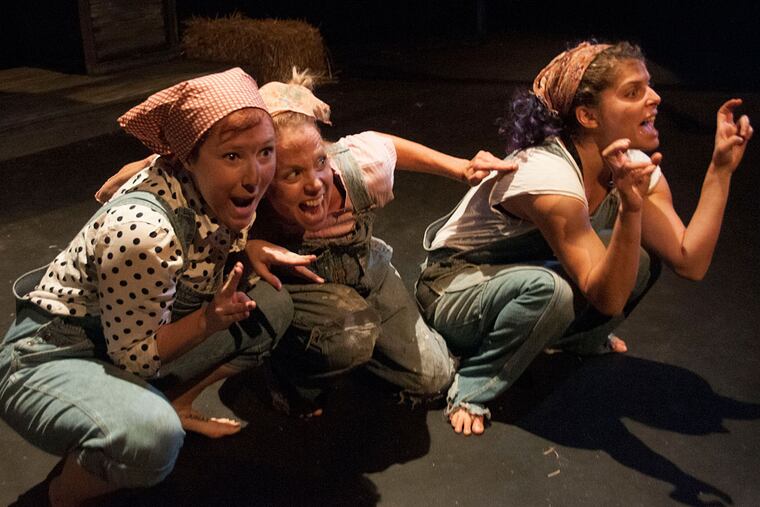Review: Powerful performances lack a target in this 'Animal Farm'
Like George Orwell in 1945, we live in a democracy tarnished by political intolerance. No English publisher wanted to issue Animal Farm in 1944, in large part because of how it depicted the (then-ally) Soviet Union.

Like George Orwell in 1945, we live in a democracy tarnished by political intolerance. No English publisher wanted to issue Animal Farm in 1944, in large part because of how it depicted the (then-ally) Soviet Union.
Today, people face public shame, lose jobs or businesses, or endure ostracism because of how they vote, what they hang on their walls, what attitudes they express on blogs, whom they've given money to, or whether they clap sincerely enough at an awards banquet.
Despite Orwell's intent to satirize, decade by decade, each stage in Russia's history from 1917 to 1945, Animal Farm prevailed on a longer timeline because it conveyed the emergence of dictatorship and control from noble origins that sought equality and freedom.
Thanks to its startling physicality, Luna Theater Company's 75-minute staging of Ian Wooldridge's adaptation succeeds in capturing that general theme of Orwell's novella, even if Gregory Scott Campbell's direction provides no similar road map for modern audiences.
On Dick Durossette's simple set of barn and house frames, six women portray all the animals and the few human characters. Without masks, they contort themselves by gait, posture, tone, and expression into pigs (Michelle Pauls and Tori Mittelman, both brilliant), the horses Boxer and Clover (Katherine Perry and Kelly McCaughan), the raven Molly (Isabella Fehlandt), and the donkey Benjamin (Sarah Knittel).
These six actors craft stunning physical performances in a staging I can only describe as terrifying, as Pauls and Mittelman turn a once-freedom-seeking revolution into a brutal police state.
The only question is: Why?
Why cast all women as animals clearly identified as male in the book? Why create one disturbing moment after the next without offering more than the horror of slaughter? Why unleash Pauls' fear-inducing portrayal to prowl the stage, appear at random like a spy, direct the atrocities, if only to terrify in the abstract, and point no real or allegorical fingers at modern targets?
An intentional interpretation of Animal Farm could find many current parallels: in both sides of the immigration debate, national security, the second-wave political correctness sweeping campuses, and the cowardly mass shaming by Social Justice Warriors on the Internet.
Throughout his life, Orwell continued in letters and references in other works to state his intended parallels in the short work that brought him to prominence. Campbell need not have labored that eagerly, but his refusal to provide any contemporary connection gives people an ax to grind with no advice on which direction to later swing it.
Not only does this ignore Orwell's desire to fuse "artistic and political purpose," it also abdicates no small part of an artist's responsibility to his audience.
THEATER REVIEW
StartText
Animal Farm
Through Nov. 7 at Luna Theater Company, 620 S. 8th St.
Tickets: $20-$25. Information: 215-704-0033, lunatheater.orgEndText